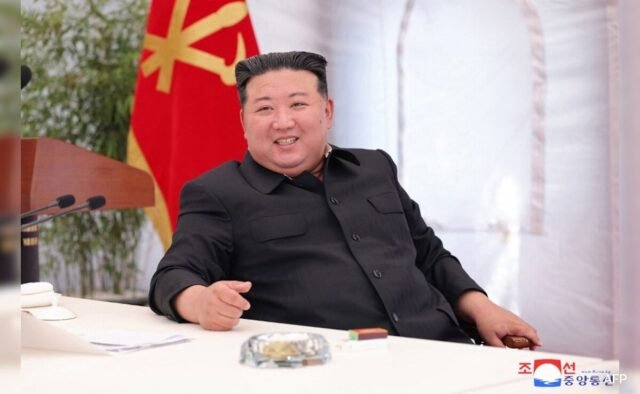New Delhi:
While the world is focused on Central and West Asia and the West’s actions in the Middle East and Europe, India has been looking and acting East with its “Middle East” policy. Besides strengthening its ties with Southeast Asian countries, New Delhi is quietly and cautiously moving towards its policy on the Korean Peninsula.
North Korea operates with a high degree of opacity, which in turn leads New Delhi to keep its diplomatic relations with Pyongyang in the shadows, unnoticed and silent from the rest of the world.
In July 2021, India quietly closed its embassy in Pyongyang and Ambassador Atul Malhari Gutsorff along with the entire staff returned to New Delhi via Moscow. Although the Ministry of External Affairs never officially announced that the embassy was “closed”, when asked by journalists why the entire staff was recalled, it said the move was taken due to the coronavirus.
Years passed without any update on the diplomatic mission in Pyongyang and fourteen months ago, Mr Gutsorff was given a new posting as Ambassador to Mongolia.
Another year later, India abruptly decided earlier this month to resume normal operations at its embassy in Pyongyang. Within days, a team of technical and diplomatic staff was dispatched to North Korea. According to a report in The Tribune , the team has already arrived in Pyongyang and is in the process of making the mission fully operational.
The embassy, which has been closed for more than three and a half years, needs to undergo a thorough inspection first. North Korea, notorious for its dubious intelligence-gathering methods, means that the staff must first patch up the entire embassy building. That, combined with the expected delays from North Korea’s bureaucracy, means that the new ambassador and the rest of the team could be months away from joining the initial staff that was sent.
North Korea’s Growing Influence
North Korea’s strategic importance is far greater today than it was four years ago—not just to India and Asia, but also to the West. Militarily, North Korea is steadily building up its nuclear arsenal while also rapidly working on technologies such as hypersonic missiles, tactical weapons, short-, medium- and long-range missiles, etc. For India, it is important to have a presence in Pyongyang and build relationships so that this technology does not end up in Pakistan or its redoubts.
In the past few years, North Korea has also deepened its ties with Russia, China and Iran – a growing alliance in Asia that many see as a counter to the Quad – a security and trade grouping that includes the United States, Japan, India and Australia. This is also a key priority for India to engage with diplomatically.
While New Delhi already has very strong ties with Moscow, it also shares good diplomatic relations with Tehran. The two most populous countries, India and China, are working to iron out differences to bring lasting peace to Asia. That leaves Pyongyang, a relationship that New Delhi has so far been very cautious about.
North Korea has also increased its trade ties with Russia and has even provided troops on the ground in Ukraine to fight alongside Russian soldiers. Taking into account Pyongyang’s growing stature and activity across Asia, New Delhi aims to build on diplomatic ties in line with its global outlook and objectives. North Korea has thus become increasingly strategically important to India, and the reopening of the embassy in Pyongyang is seen as a first step towards re-establishing a channel of communication.




